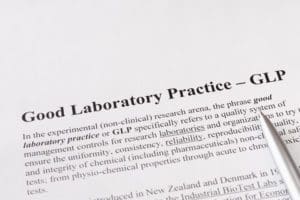Table of Contents
With the medical and food production industries coming under unprecedented pressure for cleanliness and sterilization in the age of COVID-19, ensuring the safety of production lines and supplies is paramount. Cold spray coating equipment can provide self-sanitizing coatings for a safer manufacturing solution in these unprecedented times.
As a cold spray technology provider, we provide equipment that can be used to coat virtually any metallic surface with copper and tarnish resistant bronzes, that then act as a naturally antimicrobial surface.
At VRC Metals, we advocate the use of thin copper and bronze coatings deposited with the cold spray process as an antimicrobial alternative to other coating powders. Stay with us in the following article, where we’ll show you why and how copper is a superior and natural antimicrobial agent for coating food and pharmaceutical manufacturing equipment and associated touch surfaces for maintaining a sterile environment and preventing the spread of a wide range of infectious diseases.
At VRC, we know excellence, safety, and reliability matter most to you and your operation. Visit our website for a complete list of our cold spray technology services and to schedule a call.

Antimicrobial properties of copper and its alloys
The Copper Development Association (CDA) has performed several laboratory tests providing evidence that copper kills microbes on its surface in a matter of hours, including antibiotic-resistant microbes like MRSA, and even inactive viruses like Influenza A and EBOLA. These tests occurred under the Environmental Protection Agency (EPA) Good Laboratory Practices (GLP).
Starting in 2008, the EPA has approved five groups of copper alloys as “antimicrobial materials” with public health benefits. These registrations have grown to 479 different copper alloys within six different groups.
The importance of these registrations is that these antimicrobial copper alloys continuously reduce bacterial contamination by 99.9% within two hours.
A study was published in the New England Journal of Medicine (NEJM) regarding the stability of the severe acute respiratory syndrome coronavirus 2 (SARS-Co V-2), also known as COVID 19, on various surfaces in aerosol form.
The study concluded that although the concentration of the virus was greatly reduced after 72 hours, the virus was still present on plastic and stainless steel. The same tests were conducted on cardboard and copper. In these cases, the virus was no longer viable on the cardboard after 24 hours, and no longer viable on copper after four hours.
Hand washing and disinfections are still the best line of defense against infectious disease transmission. However, providing a thin-coat copper surface to production equipment may further reduce disease transmission risk.

Copper and cholera: a fateful beginning
A doctor named Victor Burq discovered copper’s antimicrobial properties. He lived and practiced in the time of a heavy cholera outbreak in Paris in 1854-1855. One of his strongest medical convictions was that the ingestion of copper sulfate was effective against cholera, both preventive and curative.
Among the deaths by cholera, Dr. Burq noticed that there had been no jewelers, goldsmiths, burnishers, foundry workers, boilermakers, and so on. Burq went as far as to survey the army and observed that military musicians who played brass instruments were also spared.
He dedicated much of his life to researching the antimicrobial effects of and treatment applications for copper. It wasn’t until much later that his studies were verified by the scientific community at large.
Here’s what we know about copper’s microbial properties.
How copper inactivates a variety of microbes
Copper can alter proteins, form radicals, and disrupt enzymes, thereby inactivating or killing bacteria and viruses.

Very simply, when a virus or bacteria lands on a copper surface, the copper naturally sheds ions (electrically charged particles) that penetrate the outer shell of the microbe and destroy the DNA and RNA (genetic material) inside the organism.
Not only does the virus die on a copper surface, but because of the destruction of the genetic material within, the virus or other microbe may also cease to mutate to form resistance against copper in future generations.
Importantly, copper has also shown this destruction capability in precursors to the latest COVID-19 virus.

Copper and cold spray
Whether you use cold spray for repair or original coatings, copper may be both a safer and functional coating choice for equipment that touches our food or our bodies.
Since the cold spray process eliminates melting, any metallic surface can be coated with a copper-based coating, providing superior results for strength and durability than can be polished to a mirror finish.
Surfaces of copper and its alloys, such as bronze or brass, are antimicrobial. Copper kills a wide range of microbes within as little as 2 hours.
Further, new nozzle technologies now on the market make it possible to cover large surface areas quickly and to coat surfaces like steel or aluminum, which can harbor dangerous microbes for days or longer.
Some elements to watch for in your copper coating application include:
- Conductivity
- Finish: It will be essential to determine your aesthetic wishes as well as your antimicrobial priorities. Copper is the lowest cost, but bronze can be used in lieu of nickel or stainless steel.
- Substrate: Virtually any metallic surface can be coated for materials thicker than 0.01 inch.
VRC Metal Systems: your partner in antimicrobial coatings
Whether you need a precise, one-time cold spray application or a complete cold spray system, VRC can readily quote and service your requirements.
With the latest in delivery technology and a full range of consumables, we tailor our service and products to your application with a full range of experience and expertise to get the job done right. With our portable cold spray systems, you can coat, protect, and repair your in-house production line easily and at tremendous cost savings to purchasing new equipment.
Call our office today for a needs assessment, and we’ll create a comprehensive cold spray coating strategy and system for any size project.


